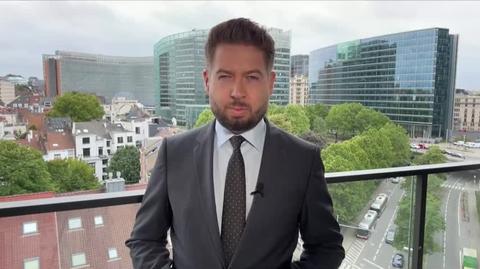Biznes Fakty
Mercosur. The European Commission has adopted a trade agreement

On Wednesday, the European Commission ratified a trade agreement with the South American bloc Mercosur. It has proposed a provisional agreement that will be effective until the comprehensive agreement is approved by national parliaments. This will take effect following endorsement from the European Parliament and the 15 EU member nations.
European Union businesses and the agri-food sector will gain immediate advantages from reduced tariffs and lower expenses, which will aid in economic expansion and job generation, stated European Commission President Ursula von der Leyen.
The College of Commissioners announced on Wednesday the finalization of the agreement text, which was established in December 2024 with Argentina, Brazil, Paraguay, and Uruguay. It also outlined the procedure for the agreement’s ratification.
 The European Commission has adopted a trade agreement with Mercosur. Report by Maciej Sokołowski TVN24
The European Commission has adopted a trade agreement with Mercosur. Report by Maciej Sokołowski TVN24Prior to the full text being ratified by the parliaments of all member states, the European Commission is recommending a provisional agreement. Its acceptance will necessitate the approval of both the European Parliament and the member nations within the Council of the EU. The Council of the EU will reach its decision by a qualified majority, which means 15 member countries representing 65% of the EU population must be in favor.
The EC’s decision concludes a nine-month process of legal refinement of the agreement’s text and its translation into the EU’s official languages.
Emergency brake
The European Commission has made a political pledge to implement an emergency brake that will enable it to respond when an excessive number of sensitive agricultural products are imported from Mercosur nations.
According to an EU source on Wednesday, this commitment will subsequently be translated into a legal document to be adopted by the EU. It will encompass a mechanism for monitoring the market for the most sensitive goods. The European Commission will update member states and the European Parliament on market trends every six months. Should disruptions arise, it will take necessary actions.
An EU source also informed reporters that the European Commission views this mechanism as an additional safeguard addressing the concerns of certain member states. However, it anticipates that the quotas established in the agreement for importing specific agricultural products from Mercosur countries into the EU offer adequate protection for EU agriculture.
For example, beef tariffs on 99,000 tons of this meat per year will decrease to 7.5 percent. This accounts for just 1.5 percent of beef consumption in the EU, or as noted by an EU official, equivalent to two hamburgers per person. „This represents a very minor portion of the market we are opening up. Additionally, this beef will still incur tariffs; only the tariff rate will be lowered,” he commented.
25 years of conversations
In December 2024, the European Commission declared the conclusion of nearly 25 years of discussions with South American nations regarding the terms of the agreement. Following this, the EU began a legal examination of the agreement and its translation into national languages.
In light of high tariffs imposed by US President Donald Trump, there were calls for the EU to expedite trade negotiations with partners globally, including those in Southeast Asia and South America.
The European Commission, which advocates for the agreement, underscores that Mercosur is the only significant trading partner in Latin America without a preferential trade agreement with the EU. Meanwhile, the EU is the bloc’s second-largest trading partner after China, surpassing the United States.
The agreement with Mercosur aims to eliminate trade barriers for European businesses, such as steep tariffs; it also includes provisions for streamlined procedures for business with the EU and the removal of regulations and technical standards that deviate from international norms.
However, the most contentious aspect of the agreement remains its opening of the EU market to agricultural imports from Mercosur. Restrictions on certain sensitive agricultural products, including beef, ethanol, pork, honey, sugar, and poultry, are to be enforced.



